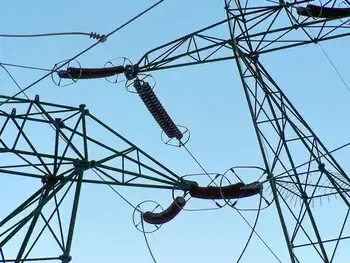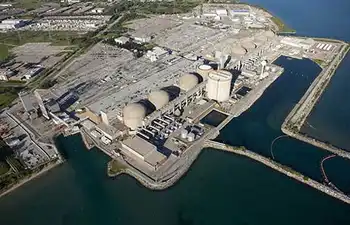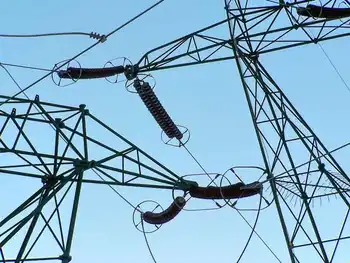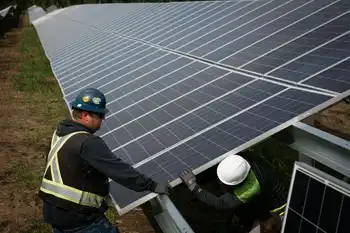Cheap B.C. power a birthright? Don't count on it
Birthright No. 2 is electricity rates that are among the lowest in North America, and far lower than any rational measure of what consumers in this province should be paying for power. With a large proportion of power generated by hydroelectricity projects that were paid for long ago, BC Hydro has been able to keep rates artificially low for decades - long enough that what was once a benefit has become an entitlement.
But the birthright of ultralow power rates seems likely to come to an end in B.C., a fact that has yet to sink into the public's mind, embroiled as it is with the comparative sideshow of the three-day-old carbon tax. BC Hydro is grinding through the regulatory process for a proposal that is aimed at bringing some market discipline to prices in the province, in order to meet its goals of slashing incremental demand in half between now and 2020.
Bob Elton, president and chief executive officer of BC Hydro, says the expectation of low power rates, plus the utility's status as a Crown corporation, make any hike a "tough sell" to ratepayers, otherwise known as voters. "They see electricity as something that belongs to them," he says.
The utility wants to introduce "residential inclining block rates" this October, a phrase boring enough that it almost obscures just how radical the shift is that BC Hydro is proposing. Those who refuse to conserve will pay more for power, and energy hogs will pay a lot more, with the penalty for overconsumption rising as time goes on.
It makes a great deal of sense, particularly since the province is counting on a dramatic conservation effort to keep supply and demand in balance. Mr. Elton says a 50-per-cent cut in demand isn't a fanciful notion - if the consumption of B.C. residents fell to that of, say, Germans, the province could meet its conservation goals easily. There's just one small problem in the analogy: Germans pay three times the going rate for electricity in British Columbia.
Mr. Elton is not proposing that steep an increase in electricity rates, but BC Hydro is taking the first steps toward something resembling a market price - the one proven route to conservation.
Under the proposal before regulators, BC Hydro would introduce block-rate pricing this fall, mimicking the tiered pricing that businesses already pay. The first 1,600 kilowatt-hours consumed in any two-month period would be at a relatively low price of 6.28 cents a kilowatt-hour (in fact, a slight decline from the current flat rate). The annual cap of 9,600 kw/h is about an eighth lower than the average annual residential consumption in B.C., an indication of the magnitude of conservation that the utility thinks each household can achieve.
But any consumption beyond the 1,600-kw/h two-month cap would cost 6.98 cents a kw/h. That gap - 0.7 cents - might seem minuscule, but it amounts to an 11-per-cent jump. The utility estimates that nearly two-thirds of customers would pay the higher rates at some point in the year, with one-quarter paying those rates on every bill.
By the third year of the regime, that gap will have grown substantially. The first block of electricity will have barely risen in price, costing just 6.55 cents a kw/h. But energy hogs beware. The second block will cost a whopping 9.35 cents a kw/h, representing a 43-per-cent jump in electricity costs.
Three other utilities in Canada - Hydro-Québec, Toronto Hydro and Yukon Energy - already have block pricing for residential power, but none of their pricing schemes are as aggressive as what BC Hydro is proposing.
It would be brave enough, if the utility were merely looking to break new ground in Canada in forcing consumers to come to grips with the true cost of energy in the 21st century. It's even more brave to do so in British Columbia this summer, as the provincial government tries to sell the merits of its carbon tax and the public clamour grows to make someone else - anyone but me! - pay.
Mr. Elton, an accountant by training, doesn't seem the easily ruffled type, but he does note the "increasing frustration" in B.C. over rising energy prices. Gas is more expensive, and ferry prices are on the rise. "I'm reading about a lot of things that are going up," he says, while expressing confidence that consumers will realize they are still getting a good deal, even if the tiered system comes into force. "Over all, it's a fair thing to do."
Sensible, yes. Fair, most likely. And will that be enough to avoid a ratepayer uproar? Mr. Elton will, no doubt, be keeping up on his reading this summer to find out the answer to that question.
Related News

Experiment Shows We Can Actually Generate Electricity From The Night Sky
LONDON - There's a stark contrast between the freezing temperatures of space and the relatively balmy atmosphere of Earth, and that contrast could help generate electricity, scientists say – utilizing the same optoelectronic physics used in solar panels.The obvious difference this would have compared with solar energy is that it would work during the night time, a potential source of renewable power that could keep on going round the clock and regardless of weather conditions.
Solar panels are basically large-scale photodiodes - devices made out of a semiconducting material that converts the photons (light particles) coming from the Sun into electricity…





